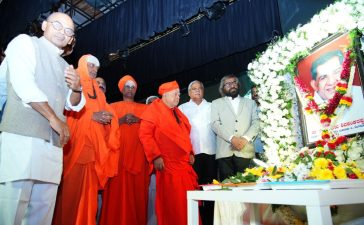CCB to Challenge High Court Decision in Supreme Court Over Dismissal of Drug Case Involving Actresses
Bengaluru: The Karnataka High Court has quashed a drug-related case against actress Ragini Dwivedi and Prashanth Ranka, which was initially registered at the Cottonpet police station in Bengaluru. The allegations against them included organizing parties, supplying narcotics to celebrities and business figures, and engaging in unlawful activities for monetary benefits.
High Court’s Decision
A bench headed by Justice Hemant Chandangoudar found that the investigation lacked direct evidence connecting the accused to the alleged drug-fueled parties or narcotics distribution. The court noted that the case relied heavily on statements from co-accused individuals, which were insufficient to proceed with a criminal trial. The bench concluded that continuing the case would be an abuse of legal processes, leading to its dismissal.
Case Background
The controversy began on September 4, 2020, when CCB Assistant Commissioner of Police K.C. Gautam filed an FIR against Ragini Dwivedi, Prashanth Ranka, and others, accusing them of supplying drugs at elite parties in Bengaluru. After a lengthy investigation, the police submitted a chargesheet on June 8, 2021, which included claims that the accused had distributed narcotics at parties in July 2020.
Ragini Dwivedi and Prashanth Ranka had petitioned the High Court to dismiss the case, arguing against the allegations. The court ultimately ruled in their favor, citing insufficient evidence.
CCB’s Response
Despite the High Court’s ruling, the Central Crime Branch (CCB) of Bengaluru is gearing up to appeal the decision in the Supreme Court. With approvals from the home and law departments, CCB officials are reportedly finalizing their petition, which is expected to be filed imminently.
This case marks a pivotal moment in Karnataka’s ongoing efforts to combat drug-related activities, particularly those involving prominent personalities. The outcome of the Supreme Court appeal will be closely watched as it could set a precedent for similar cases in the future.
![]()












Excellent post. Keep posting such kind of information on your
blog. Im really impressed by it.
Hi there, You’ve done an excellent job. I will certainly digg it and in my view recommend to my friends.
I’m confident they’ll be benefited from this website.
Feel free to surf to my web blog … spinbet99